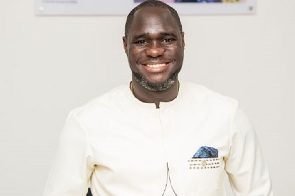From Benjamin Mensah, GNA Correspondent in Addis Ababa, Ethiopia
Addis Ababa (Ethiopia), Jan 29, GNA - Equatorial Guinea President Teodoro Obiang Nguema Mbasogo at the week-end regretted that there was not enough solidarity among African nations, and it was necessary to avoid this situation so that “others would not disempower the Continent.”
Addressing the opening session of the African Union (AU) Ordinary Session of Heads of State and Government in Addis Ababa, President Mbasogo decried the conflicts on the continent, and reiterated the call on African nations to abide by the decision at the Franco African conference to reject all Governments that will rise to power through anti-democaratic and violent means.
President Mbasogo, who handed over the chairmanship of the Africa Union to President Yahya Boni of Benin, at the opening session, held in the new AU building in Addis Ababa, said it was time the leadership of Africa took decisions on African integration and development, in order to achieve the vision of a united, prosperous and peaceful continent.
Two other names that circulated for position of the Chairperson over the past week were Nigerian President Goodluck Jonathan and Gambian President Yahya Jammeh.
Ghana’s President John Evans Atta Mills, attending the summit, would in a few hours deliver the keynote address on the adopted theme: “Boosting Intra African Trade”, to the 54-nation member continental body.
President Mbasogo, who had been in office as the AU Chairman for the one past year, regretted that Africa today was like a chess board where the nations and leaders were like pawns on the board that were manipulated by external powers.
“We need a situation where African leaders are much more united and show solidarity to deal with the interference from external powers, and deal with the problems facing the continent," President Mbago said.
He said the AU still faced problems, and asked the member nations to redouble their efforts to finance the budget of the Union.
Mr Ban Ki- Moon, UN Secretary General, who was participating in the session for the sixth time, said there was the need to transform potentials in Africa into progress for all.
He said 2011 was as “”a year of high drama”, because of tensions in some parts of Africa, and added that Africa needed a common ground for the future.
“ We must adopt preventive approach to human rights ” Mr Ki-Moon said and called for investment in civil, political, economic, social and cultural rights in addition to trade transactions, which are crucial to development.
Mr Ki-Moon said as nations pushed for prevention of injustice they must also help nations in transition to develop.
He called on the 25 African nations which will hold either presidential or legislative elections to ensure that the processes are well-managed, transparent and inclusive.
Dr Jean Ping, Chairperson of the AU Commision, who is being challenged by South Africa's Home Affairs Minister Nkosazana Dlamini-Zuma for another four year term, raised the issue of capacity to effectively promote the position of the AU and Africa’s interests on the international scene.
Libyan Prime Minister, Abdurrahim al-Keib, called for a regional security conference to tackle a proliferation of weapons caused by exiled supporters of former Libyan leader Muammar Gaddafi.
Some obesrvers believe that the Libyan civil war may have given militant groups in Africa's Sahel Region like Boko Haram and al Qaeda access to large weapons caches, according to a U.N. report released on Thursday.
Mr Keib said there was still a real threat from some armed remnants of the former regime, who fled Libya and were moving about freely.
He said this was a threat to Libyan and its neighbouring countries and added that “my country calls for a regional security conference in Libya of interior and defence ministers of neighboring countries.”
Mr keibi called on the international community to expose agents of the former Gadafi regime, and any property that might be hidden elsewhere as well as making restitution to people deprived of their wealth during the Gadafi era.
Tunisia President Moncef Marzouki, pledged his administration’s commitment to make Libyan a true member of the world community unity.
General News of Sunday, 29 January 2012
Source: GNA
















